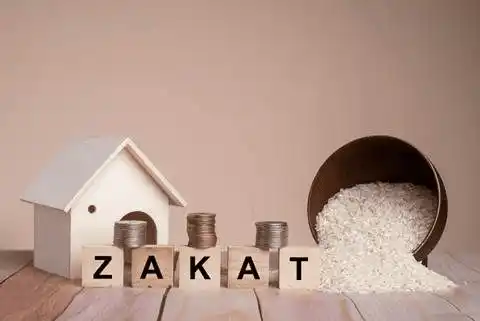Balancing Success and Social Good: Zeeshan Hayat’s Insights on Zakat

Zakat is a core principle in Islamic finance that requires Muslims to allocate a portion of their wealth to charity annually. This practice, deeply rooted in religious teachings, is designed to purify one’s wealth and ensure that it surpasses the basic necessities of living for oneself and one’s family.
Essentials of Zakat
- Religious Duty: Zakat is one of the Five Pillars of Islam, making it a mandatory practice for Muslims who have the financial means. Unlike voluntary charitable acts such as Sadaqah, Zakat is a compulsory financial obligation.
- Wealth Purification: By giving away a set percentage of their wealth, Muslims aim to purify their surplus earnings. This ensures that their wealth exceeds the basic needs required for personal and familial sustenance.
- Amount and Calculation: The standard amount of Zakat to be given is 2.5% of one’s total savings and wealth, which includes various forms of assets like cash, investments, personal and business income.
Function and Impact of Zakat
Zakat is integral to Islamic life, complementing other religious obligations such as faith, prayer, fasting, and pilgrimage. It serves as a means of wealth redistribution, ensuring that those who are less fortunate receive necessary support. The calculation and distribution of Zakat vary based on the nature of the wealth, including agricultural produce, livestock, and financial assets.
Eligible Recipients
The recipients of Zakat are categorized to ensure that aid reaches those in genuine need:
- Individuals in poverty or financial distress
- New Muslims facing economic challenges
- People burdened by debt
- Travellers in need
How to Calculate Zakat
To calculate Zakat, individuals must evaluate their total wealth and subtract any debts. The remaining amount is then subject to a 2.5% Zakat if it meets or exceeds the nisab threshold. Various online tools and calculators are available to facilitate this process.
Source: Sheria Law as the calculator for your Zakat.
Significance of Zakat for Entrepreneurs
Zakat is crucial for entrepreneurs as it aligns with the example set by Prophet Muhammad (PBUH), who combined business success with high ethical standards. Renowned as “Al-Amin” for his trustworthiness, the Prophet demonstrated that genuine entrepreneurship involves both financial expertise and social responsibility. For Muslim entrepreneurs, paying Zakat upholds this principle by ensuring their wealth aids those in need, thereby honoring the Prophet’s legacy of leveraging success for the broader benefit of the community.
For business owners, Zakat is calculated based on net income, which include inventory, receivables, and cash, after subtracting liabilities. Consider your business like a well-maintained orchard. Just as pruning ensures its health and productivity, Zakat ensures your wealth circulates within the community, maintaining an economic balance and social welfare.
In Summary
Zakat is a fundamental aspect of Islamic practice, aimed at promoting social justice and supporting those in need. While it is a practice rooted in Islamic tradition, the benefits of Zakat resonate with everyone, regardless of religious affiliation. Its impact reaches beyond the Muslim community, promoting a culture of generosity and support that transcends boundaries. In essence, Zakat not only aids those in need but also enriches the giver, cultivating a spirit of empathy and shared responsibility that benefits all.
If you’re looking for a meaningful way to support those in need through donations of essential items, consider beginning with 100 Meals a Week. Established in 2006 by Zeeshan and Karina Hayat, 100 Meals a Week offers a holistic approach to charitable giving by removing logistical barriers for donors, making participation seamless and straightforward. Every donation, no matter the item, is guaranteed to directly benefit individuals in need.
